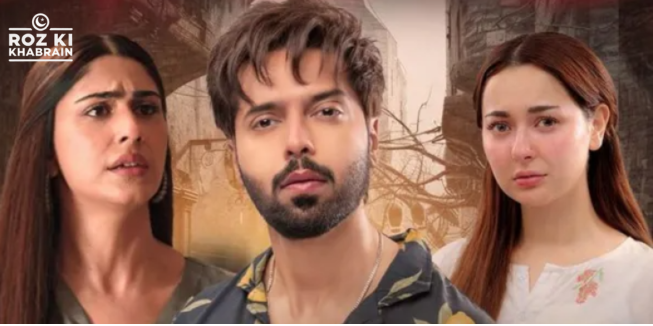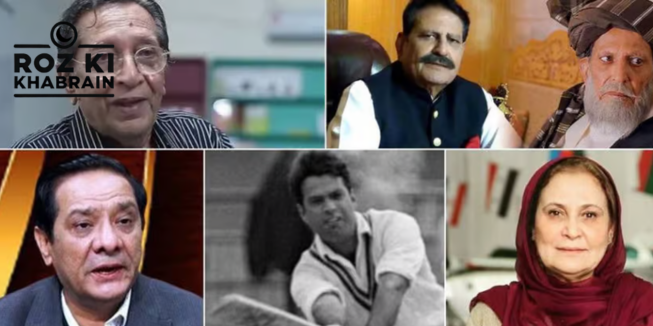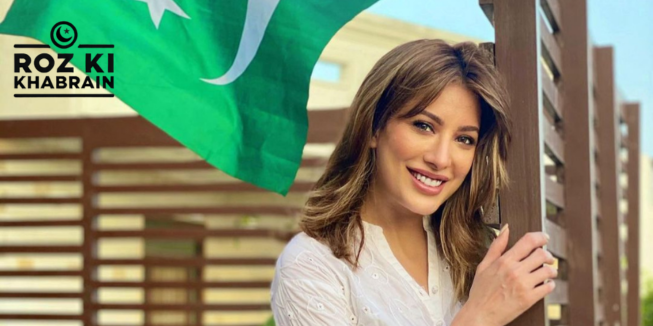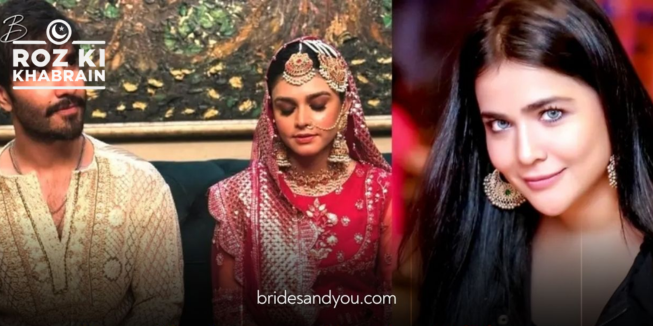Sharjeena and Rubab from Kabhi Main Kabhi Tum have recently become hot topics. At home, I overhear my mother discussing them with my aunts, and at work, I hear women chatting about how Rubab exacted revenge on her deceitful, unfaithful, and poorly dressed husband.
It’s clear that these two characters, portrayed by Hania Aamir and Naeema Butt, have reignited the classic good girl versus bad girl debate. For the first time in a while, Pakistani audiences seem to be siding with Rubab, who embodies the quintessential ‘bad girl’ archetype. However, I believe we may be jumping to conclusions too soon.
Is Sharjeena Really a ‘Crybaby’?
While social media celebrates Rubab and labels Sharjeena as a “crybaby,” it’s essential to consider everything Sharjeena has endured: feeling forsaken by her husband when she needed him most, compromising her lifestyle for him, experiencing a miscarriage, and grappling with postpartum depression—yes, one can experience PPD even after a pregnancy loss. I would urge anyone making comparisons between the two to reconsider.
Such comparisons undermine the essence of feminism, which is about uplifting women rather than pitting them against each other.
The Context of Their Rivalry
Kabhi Main Kabhi Tum has gained popularity due to its impressive cast and engaging yet simple storyline. In the show, Sharjeena and Rubab are adversaries because Rubab ultimately marries Adeel, who was initially engaged to Sharjeena.
After this, Sharjeena marries Adeel’s younger brother, Mustafa, who, to put it kindly, is a man-child in his late twenties, spending his days lounging and playing video games. Sharjeena, portraying the ideal middle-class wife, takes it upon herself to “fix” him—a trope we continue to romanticize.
The latest episodes have led viewers to favor Rubab over Sharjeena because Rubab has shown vulnerability due to her life’s challenges: going from wealth to poverty, being ignored by her husband (the ever-popular Mustafa, played by Fahad Mustafa), and losing her child. Furthermore, Mustafa revealed that he never wanted children in the first place, providing no reassurance during Sharjeena’s sacrifices while she supported his ambitions.
Is Rubab Truly Empowering?
As for Rubab, we must recognize the privilege she operates from. While privilege isn’t inherently negative, it comes with a sense of entitlement. Rubab, backed by her father’s wealth, often acts like a spoiled, manipulative child who demands her way. While her confrontation with her unfaithful husband Adeel (played by Emmad Irfani) was indeed dramatic, it doesn’t automatically qualify her as a feminist icon. Let’s remember that she pursued an engaged man, married him, and then plotted against his brother and ex-fiancée to oust them from their own home.
Despite her wealth, she schemed to undermine Sharjeena, when feminists are meant to uplift and support other women, not feel threatened by them.
The Impact of Social Media
Following the last episode, some reactions on social media were quite troubling, but one particular reel stood out and inspired this reflection. It featured a scene of Sharjeena alone in her room, crying. This poignant moment captures her profound sense of isolation—something we can all relate to at some point in our lives.
Given the distinct circumstances surrounding the two characters, comparisons feel misguided. Rubab faces challenges that don’t directly involve Sharjeena. Sharjeena has her moments of strength, such as standing up to Rubab for insulting her family and rebuilding her life from scratch. Yet, she is labeled clingy for seeking the bare minimum from her husband and called a crybaby for expressing her feelings.
Modern Feminism and Emotional Expression
No matter how empowered a woman may be, it’s entirely human to experience emotions. Sharjeena is a strong woman in love, and let’s be honest—women can go to great lengths for those they care about. Her support for her partner’s aspirations and tolerance of his mother’s insults is not uncommon, even if it’s not a standard that should be expected from every woman.
However, shaming someone for crying over their unmet expectations simply because they chose a particular path is unacceptable.
What would you do if your partner completely ignored your existence, especially during a time when you’re emotionally vulnerable? How would it feel if he promised to be there for a doctor’s appointment but didn’t even bother to apologize for being late?
While I appreciate the empowering notion of a woman seeking revenge against an unfaithful partner, I cannot support romanticizing a character who continually belittles another woman. Rubab pursued a man who was engaged, professed her love at the last moment, leveraged her privilege to demean Sharjeena, and ridiculed her for being “middle-class.” Is such classist and toxic behavior truly heroic?
Understanding Different Backgrounds
We must recognize that these two women are navigating entirely different realities. One is dealing with infidelity, while the other feels neglected and unloved. How can anyone fairly compare these two women, who come from different backgrounds and grapple with different emotional experiences? It simply doesn’t add up.
Finally, let’s remember that most women in society lack the privilege to behave as Rubab has. Many are stuck in relationships like Adeel’s due to emotional manipulation, threats, lack of support, or various other challenges. It’s incredibly difficult for a woman to leave a marriage, and we should not judge those who choose to stay.
In conclusion, we should support one another as women and refrain from idealizing a character who doesn’t embody the qualities of a true “girl’s girl.” We can appreciate Rubab without disparaging Sharjeena—after all, that’s how it should be.




